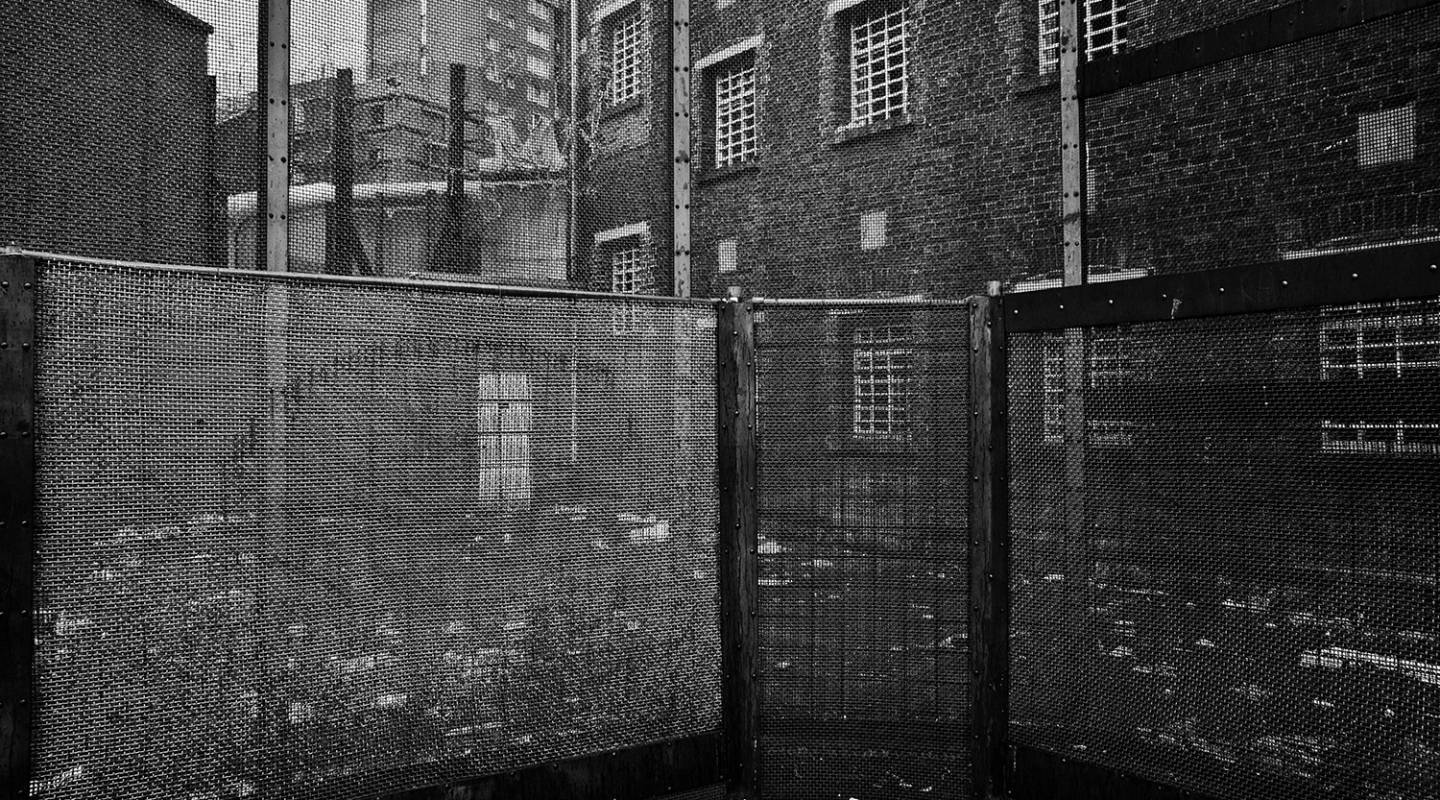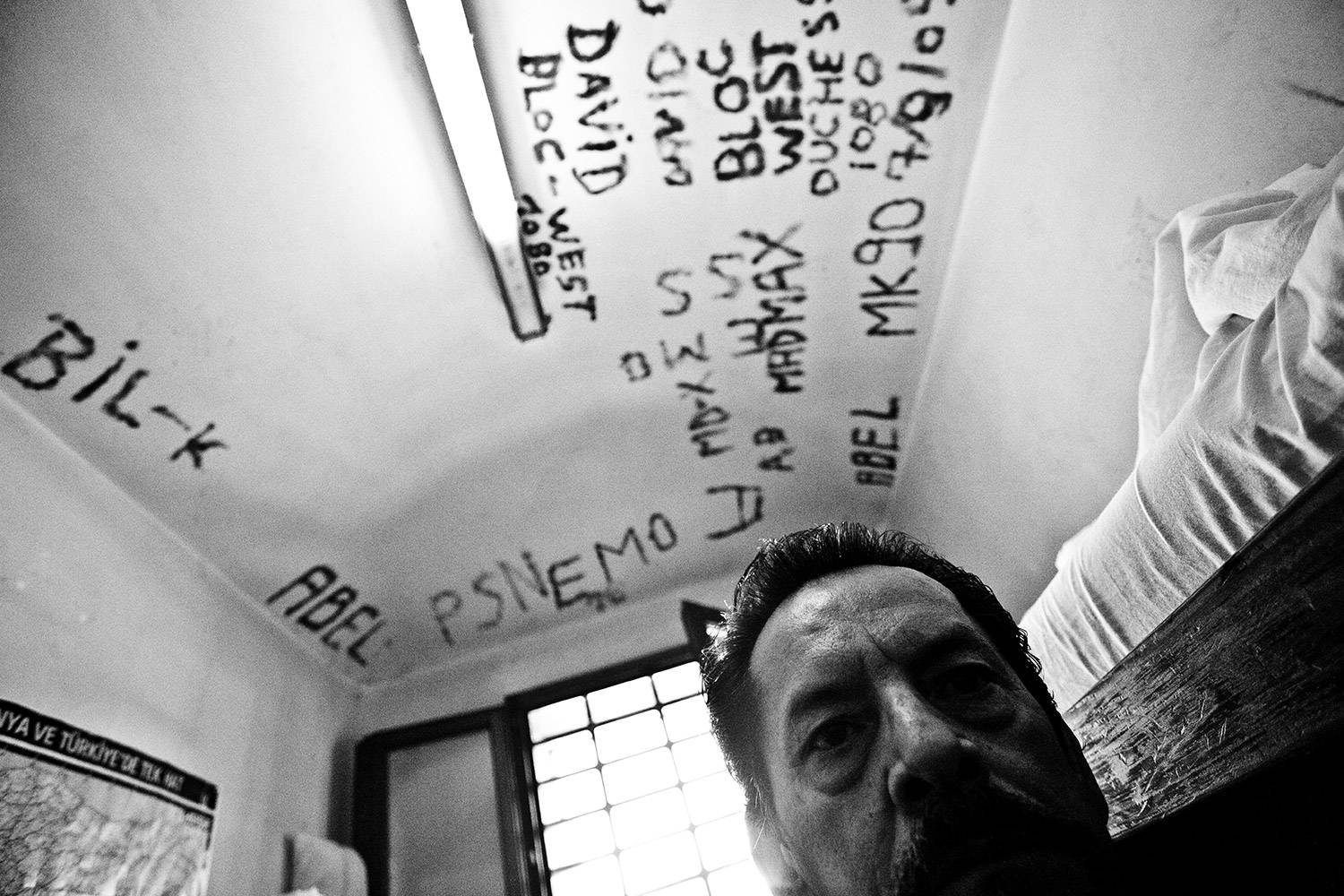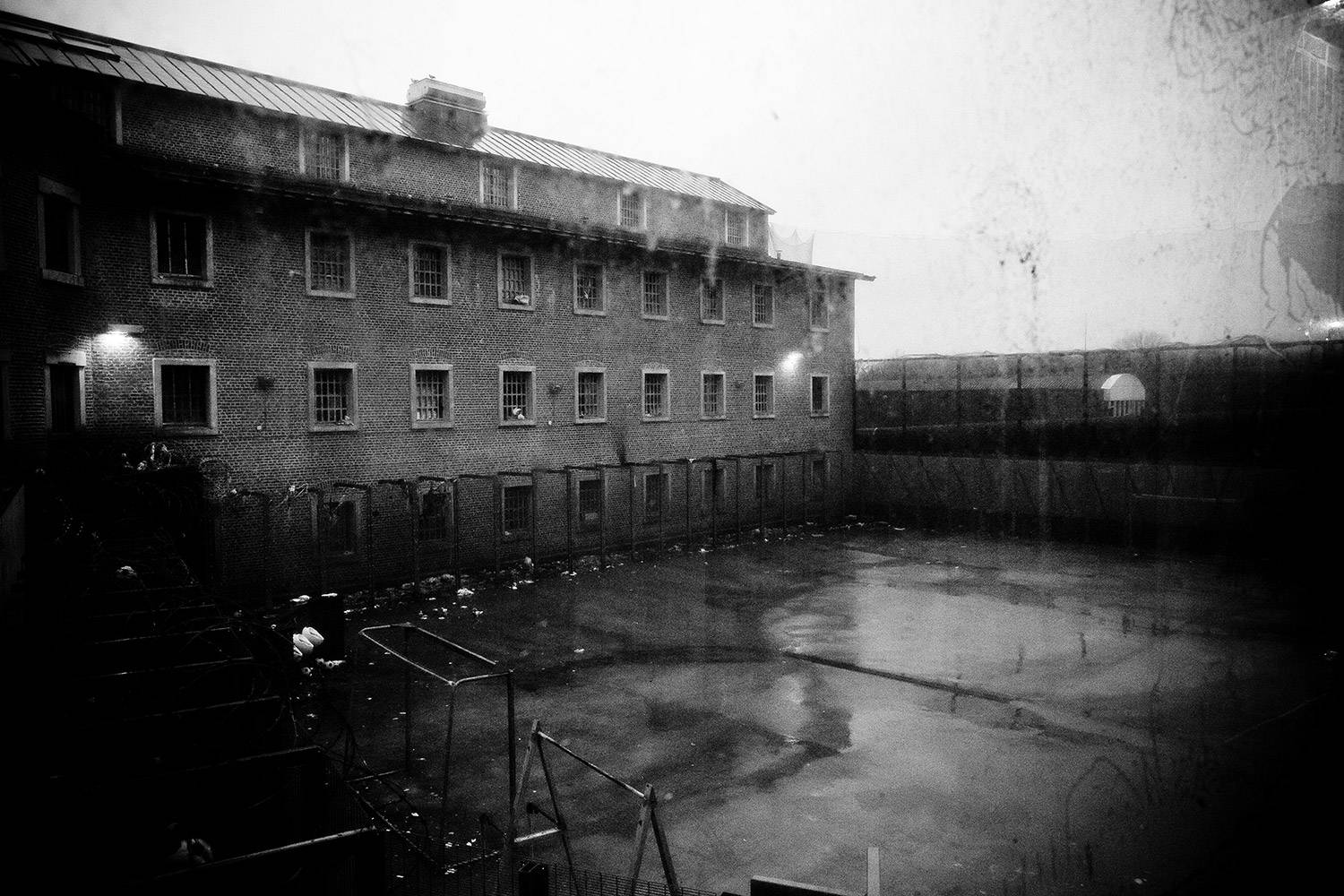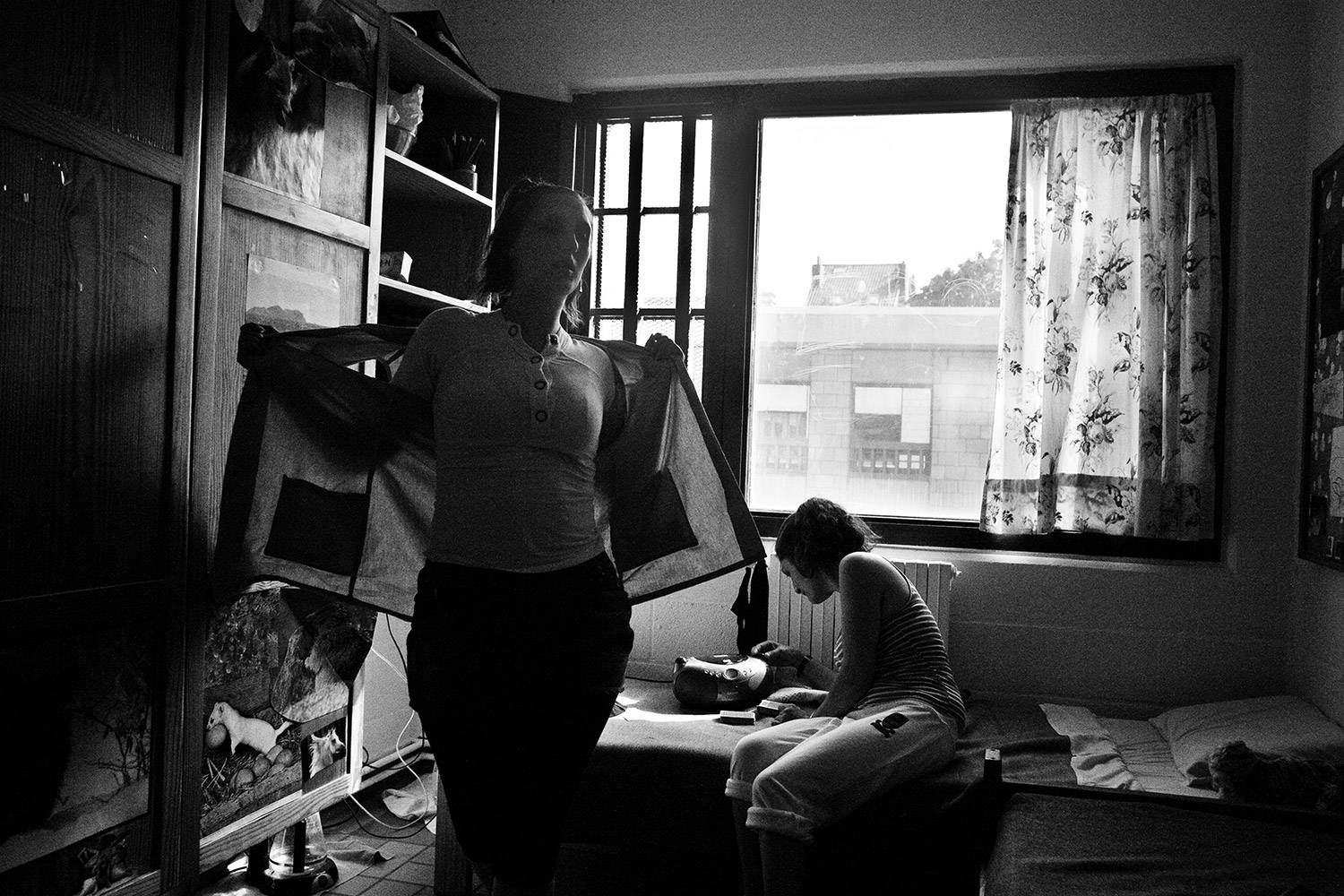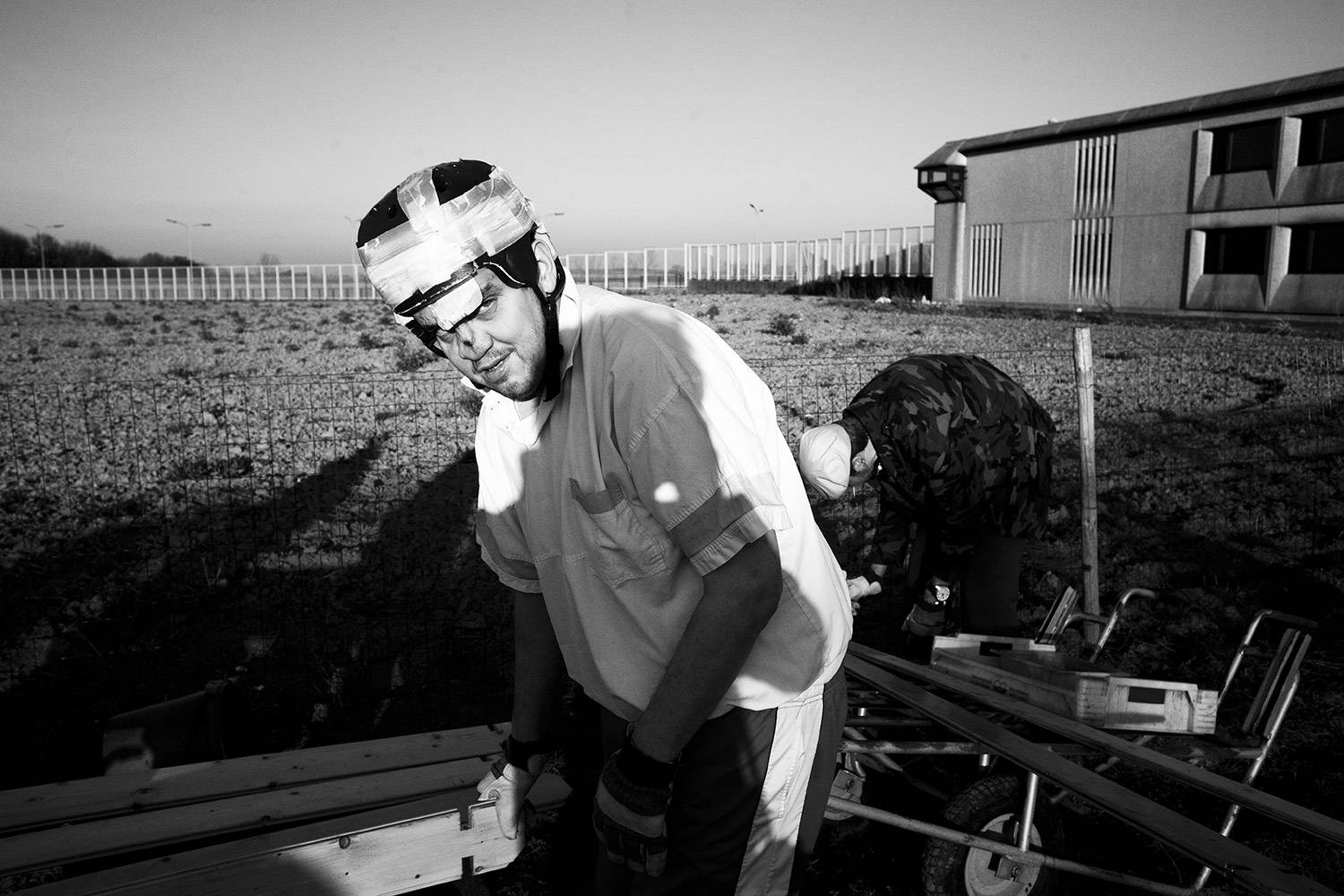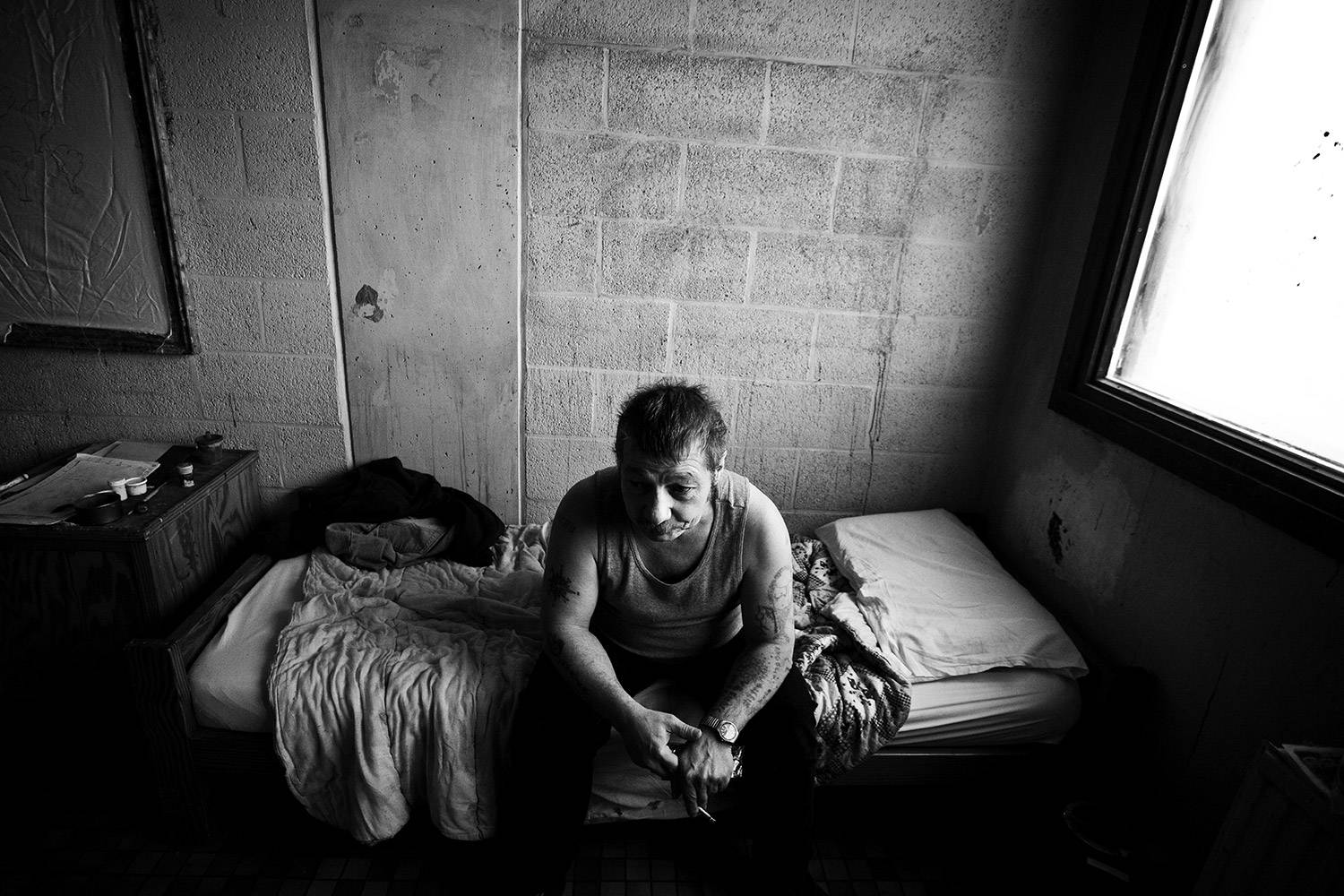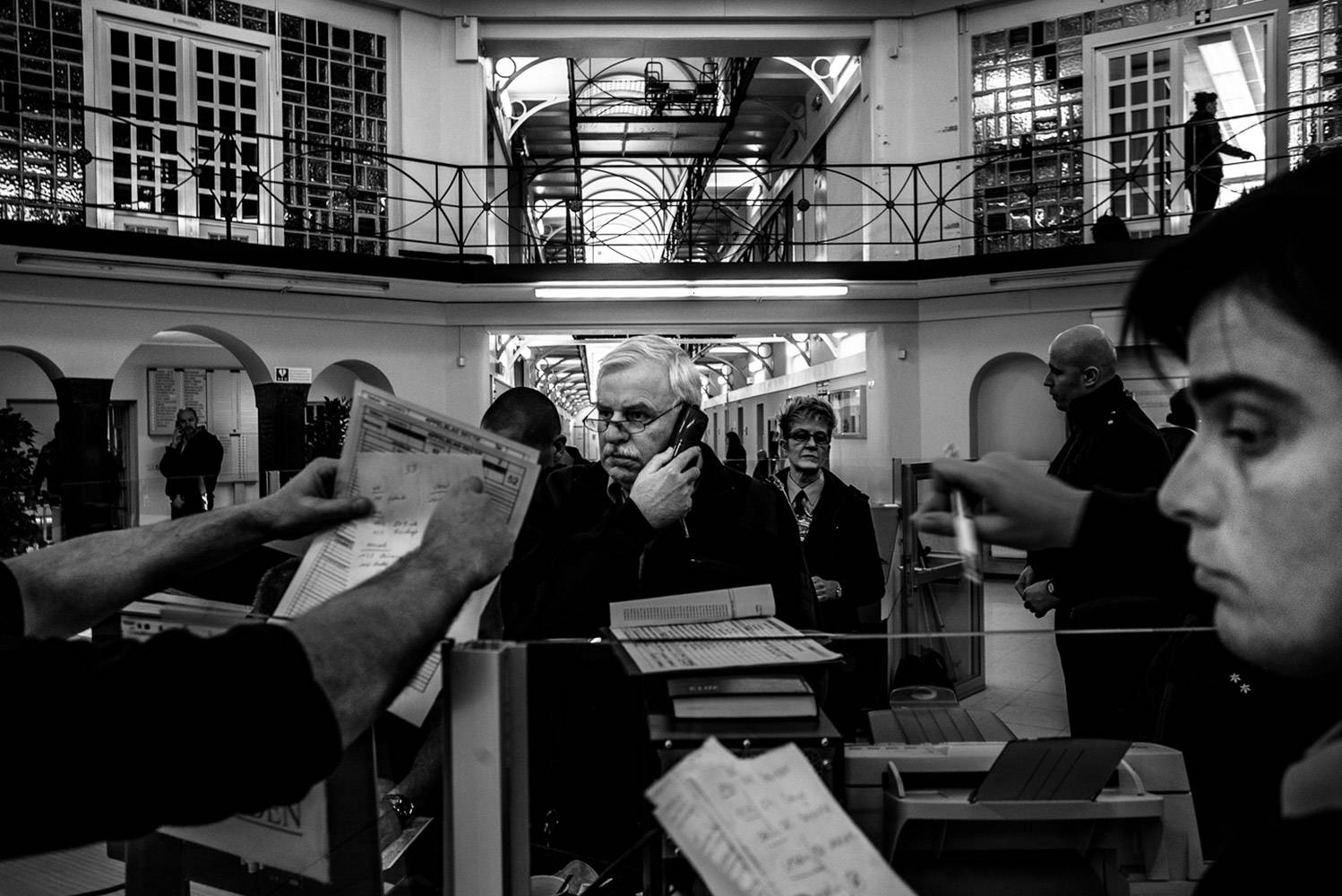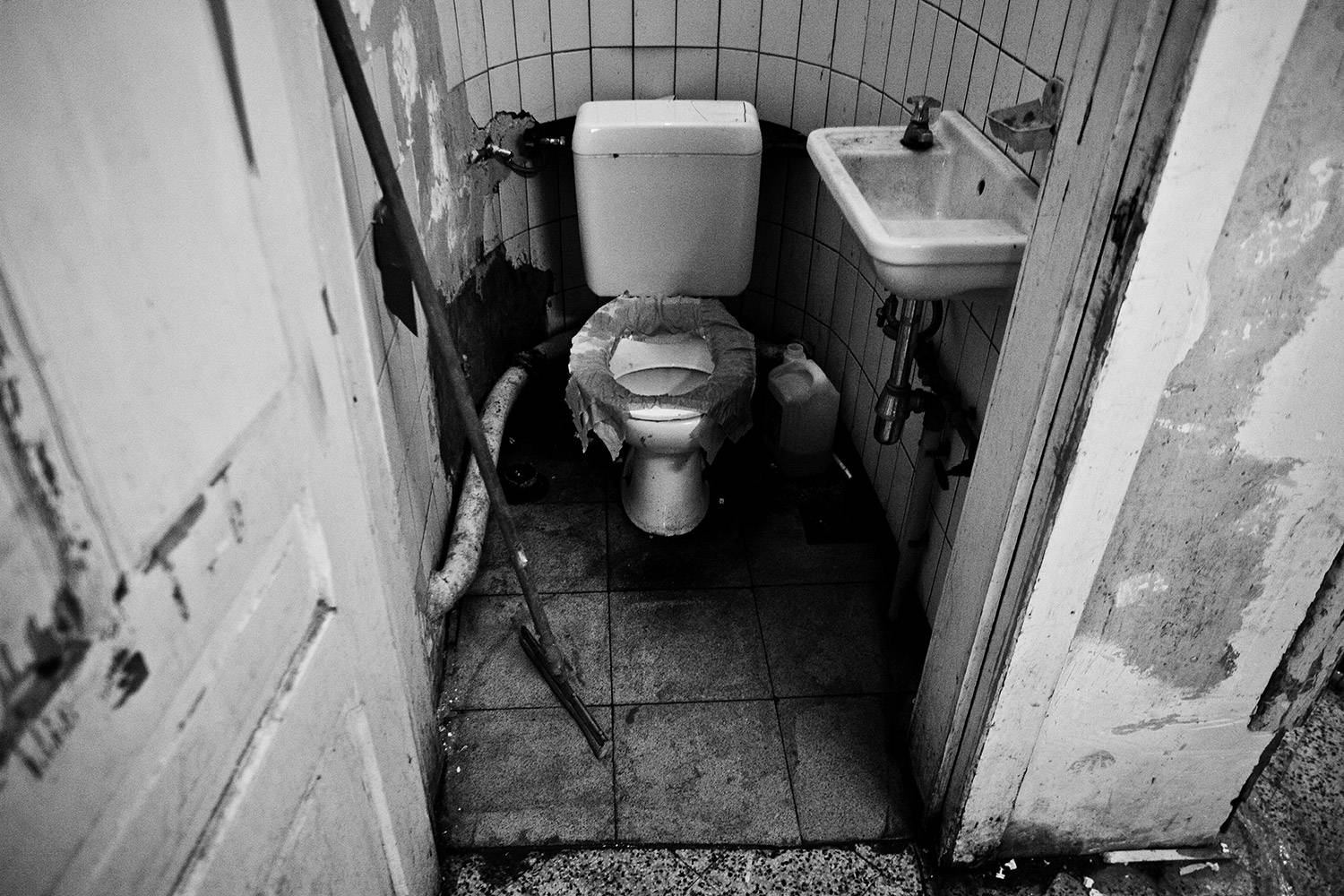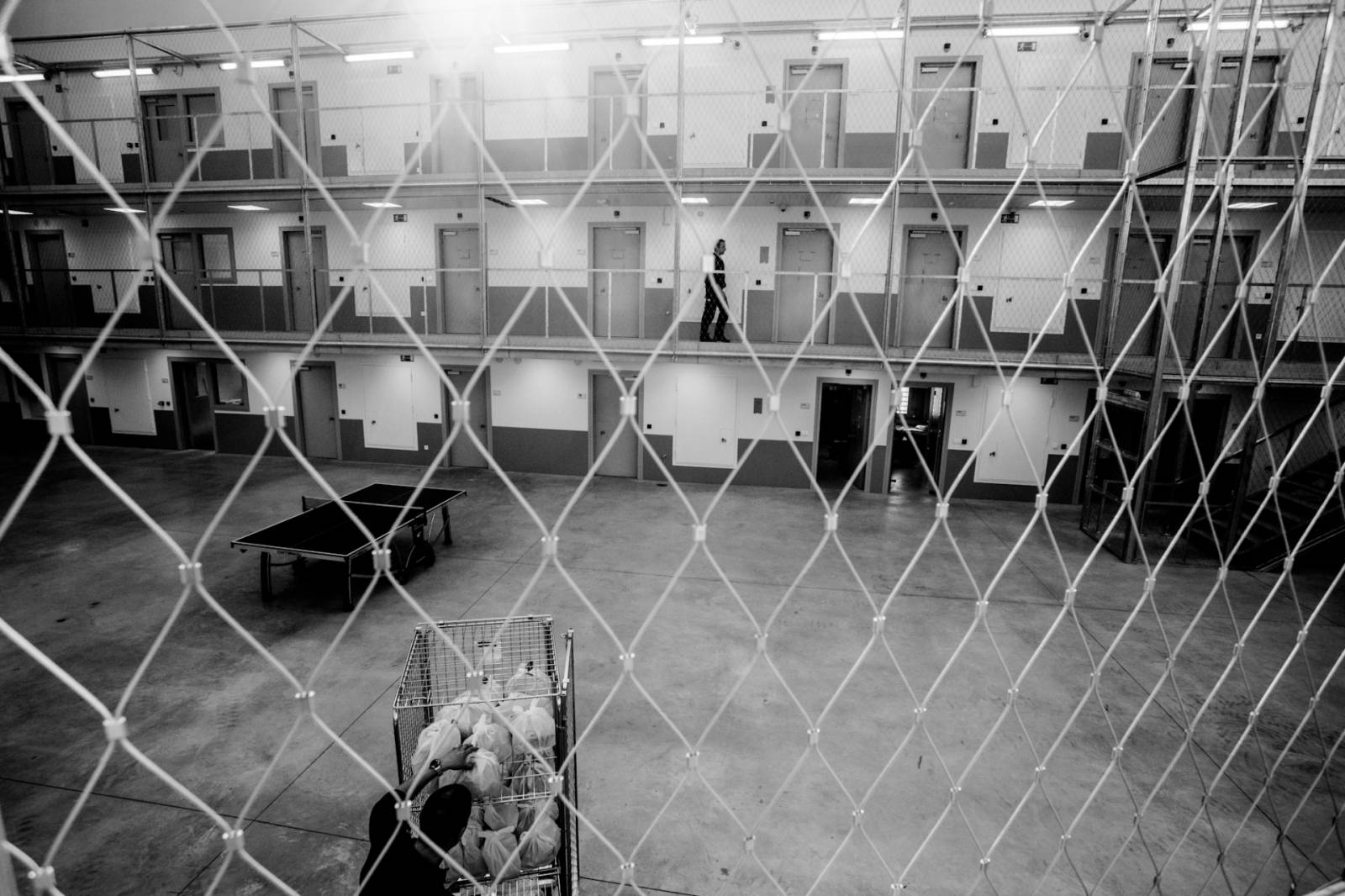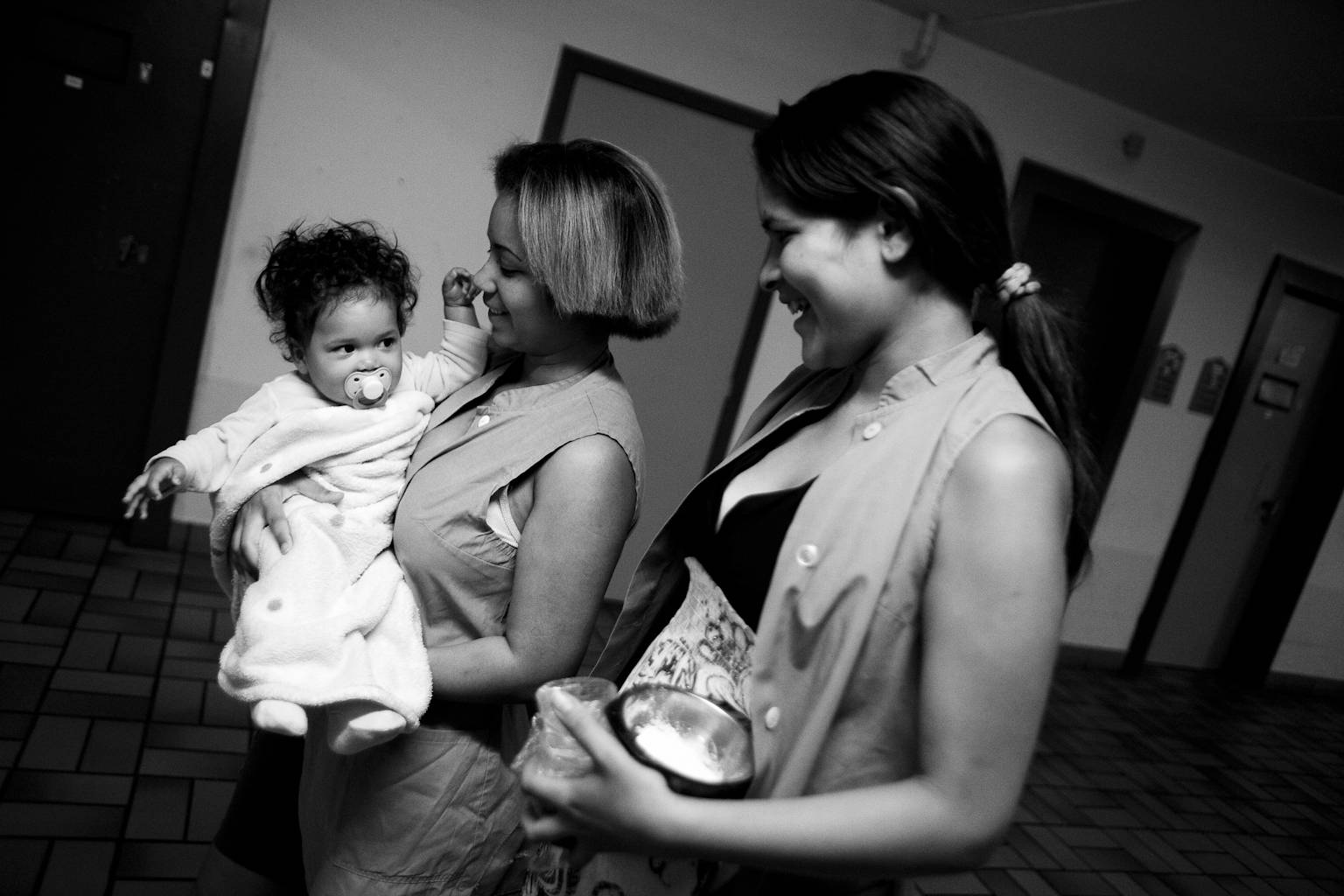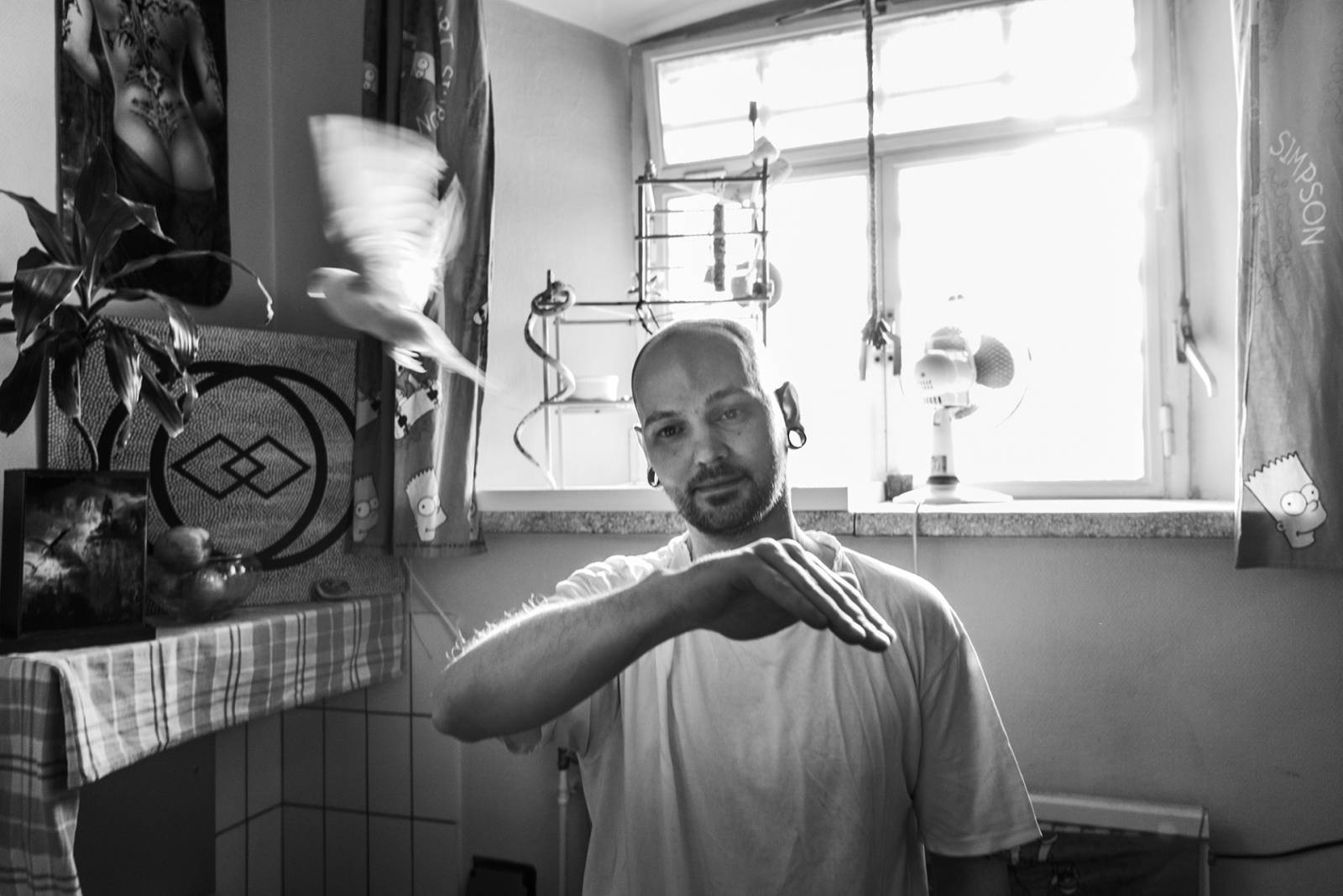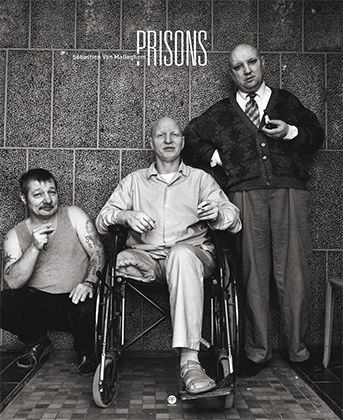PRISONS is a self-financed report begun in 2011 on approximately 10 detainment facilities. It is the continuation of a study of Belgian police and their work in the field over the course of several years. The objective is to raise awareness of detainees’ conditions and to shed light on the shortcomings of an outdated judicial and corrections system, which nonetheless is a part of the country that instilled in me the ideals of justice and humanity.
Why do we turn a blind eye to shattered fates? To those who are ravaged by them? These photos expose the fractures and reveal the toll inflicted by social institutions which intensify tensions and aggressiveness, excessive behavior and insanity, faith and passion, failure and poverty. They show how difficult it is to deal with that which is outside the norm, at a time when what is normal is defined more and more by homogenization, the internet and reality TV: farther and farther away from life, from our lives, trapped themselves in an idyllic place but confined by computer or television screens.
Nevertheless, the issue here is not the obligation we have to isolate and monitor criminals. My images are intended to condemn the archaic and impenetrable enclosures built around these men and women at odds with society – the walls upon which their humanity withers away, concealed by crime or mental illness.
The aim of this report is to point out the distress produced by the deprivation of freedom and of relationships, by the confinement in cells reminiscent of a Gothic novel or horror film, by failure also: the failure of an aborted escape into drugs or toxic relationships. These baleful, disheveled faces, victims and mirrors of the passions born of our urban theaters, are our dark side. It is frightening. Reassuring also, face to the emptiness left by an exile that leads to forgetfulness, lack of awareness and self-satisfaction.
Reality does not subject itself to forgetfulness or denial. Within the walls of penitentiaries, it imposes itself through cries of hate, rage or despair, along with the clanking of steel doors on overcrowded cells. It gives birth to children in unhealthy cages, inside fortresses covered in barbed wire. It promotes violence, fosters mental cruelty, abuse of power, mistreatment, illegal trafficking, corruption and, undoubtedly more than on the outside, lends prominence to the power of money.
In prison, the concepts of deprivation and punishment are exaggerated: the withholding of contact with family, the lack of moral and emotional support, the denial of recreation, solitary confinement to the extreme in “holes” measuring 60 square feet, reeking with the musty odors of excrement permeated into blind walls.
To curb the escalation of this violence, the explosion of these tensions, the state recruits: the promise of a steady job for a mediocre salary.
Corrections officers: the guarantee of difficult and thankless work, sometimes dangerous and often far from home; the promise of regular pay certainly, but surely not enough to prevent corruption.
Educators: what hope is there for rehabilitation when crime remains a part of one after the debt to society has been paid?
Psychologists: the guarantee of powerlessness when confronted with a pathogenic environment, subjects who are defiant, intellectually challenged or demented, a paralyzed administration. Witness the telling remark of a psychologist working in a prison for offenders who were judged as not responsible for their actions: “This is the bottom of the barrel; there is nothing lower in the social classes. It is the end of the road for many of them.” So naturally there is medication and access to video games: addiction and infantilization by means of correctional institutions.
Gaining access to these human beings required eight months of research and requests to an administration which was reluctant but nonetheless agreeable to showing realistic images rather than memoranda or drafts of ministerial projects. The reality is sordid; it undermines the definition of humanity, not by the issues raised by crime per se, but by the reactions of society and the judicial system with regard to punitive measures.
Sebastien Van Malleghem
